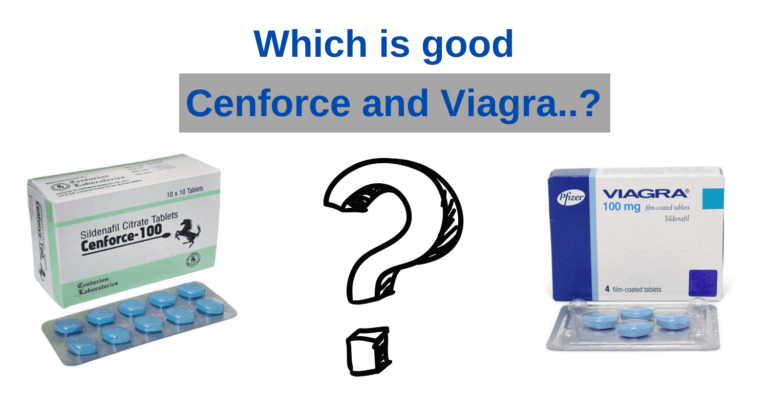What is Erectile Dysfunction?

What is Erectile Dysfunction?
Erectile dysfunction, often abbreviated as ED, is a condition that affects a man’s ability to achieve or maintain an erection firm enough for sexual intercourse. Although many people think of it purely as a sexual problem, ED is actually a complex issue that intertwines physical health, psychological well-being, and relational dynamics. At its core, an erection is a vascular event: blood must flow into the penis and remain there to maintain firmness. When a man becomes sexually aroused, nerves release chemical messengers that prompt blood vessels in the penis to relax and widen, allowing blood to fill the spongy tissues inside. The pressure traps the blood, producing an erection. However, when any part of this process is disrupted — whether by physical conditions like cardiovascular disease, hormonal imbalances, or nerve disorders, or by emotional factors such as stress and anxiety — erectile dysfunction can result. It’s important to remember that occasional difficulty with erections is normal, especially during times of stress or fatigue. ED is typically diagnosed only when the problem persists over time and causes distress or interferes with sexual relationships.
From a medical perspective, ED is not just about sex; it’s a potential red flag for other serious health problems. Many cases of erectile dysfunction stem from underlying conditions such as high blood pressure, diabetes, atherosclerosis (hardening of the arteries), or neurological disorders like multiple sclerosis or Parkinson’s disease. These conditions impair blood flow or nerve function, both crucial to a healthy erection. In fact, doctors often consider erectile dysfunction to be an early warning sign of cardiovascular disease. Studies have shown that men who develop ED may be at higher risk of having heart attacks or strokes later on. Thus, ED can serve as a crucial indicator that prompts men to seek medical evaluation, leading to the diagnosis and treatment of other potentially life-threatening conditions. That’s why doctors urge men not to ignore persistent erection problems, even if they feel embarrassed discussing them.
Psychological factors play a significant role in erectile dysfunction as well. Stress, anxiety, depression, and relationship problems can interfere with the brain’s ability to send signals that trigger the physical erection process. For some men, performance anxiety becomes a vicious cycle: a single episode of ED leads to worry and fear about sexual failure, which increases stress during subsequent sexual encounters, making ED even more likely to occur. Depression can reduce sexual desire and create feelings of inadequacy, further complicating sexual relationships. Additionally, issues such as low self-esteem, guilt, or cultural and religious beliefs about sexuality can contribute to psychological barriers around sexual performance. In many cases, the physical and psychological aspects of ED are intertwined, creating a complex problem that requires a sensitive and comprehensive approach to treatment.
How an Erection Works
To understand erectile dysfunction, it helps to know how erections happen. Sexual arousal triggers signals in the brain.
These signals travel down nerves to the penis, causing muscles in the penis to relax. Relaxed muscles allow increased blood flow into two chambers called the corpora cavernosa. As the chambers fill, the penis becomes firm and erect. Veins that normally carry blood away from the penis constrict, keeping blood trapped and maintaining the erection.
After sexual stimulation ends or ejaculation occurs, muscles contract again, blood flow decreases, and the erection subsides.
Erectile dysfunction occurs when there’s a problem anywhere in this process — in the brain, nerves, blood vessels, or hormones.
Causes of Erectile Dysfunction
Erectile Dysfunction can result from a complex mix of physical, psychological, and lifestyle factors. Understanding these causes is essential for effective treatment.
It’s crucial to remember that erectile dysfunction is not an inevitable part of aging. Although the risk of ED increases with age, many older men maintain healthy sexual function, and younger men can experience ED too. The key is not to ignore the problem out of embarrassment or fear. Men experiencing ongoing difficulties with erections should consult a healthcare provider. Not only can this help restore sexual health and confidence, but it can also reveal other significant health issues that might need attention, such as heart disease or diabetes.
Physical Causes of Erectile Dysfunction
One of the main reasons men develop erectile dysfunction lies in underlying physical health conditions that impair blood flow, nerve function, or hormone balance—all of which are crucial for a healthy erection. Several important physical causes include:
Cardiovascular disease: Conditions such as atherosclerosis (narrowing and hardening of the arteries) reduce blood flow throughout the body, including to the penis, making it difficult to achieve a firm erection.
High blood pressure and high cholesterol: These conditions damage blood vessel linings and contribute to poor circulation, which can interfere with erectile function.
Diabetes: Both type 1 and type 2 diabetes can cause nerve damage (diabetic neuropathy) and reduce blood flow, significantly raising the risk of ED.
Obesity: Excess body weight is linked to lower testosterone levels, inflammation, and cardiovascular disease, all of which can contribute to sexual dysfunction.
Hormonal imbalances: Low levels of testosterone, known as hypogonadism, can reduce libido and make erections more difficult to achieve or sustain.
Neurological conditions: Diseases like Parkinson’s, multiple sclerosis, stroke, or spinal cord injuries can disrupt nerve signals that are essential for sexual arousal and erection.
Medications: A variety of drugs, including those for high blood pressure, depression, anxiety, and prostate issues, list erectile dysfunction as a potential side effect.
Substance use: Smoking, excessive alcohol consumption, and use of illicit drugs like cocaine or heroin can damage blood vessels or interfere with nerve function, increasing the risk of ED.
These physical causes highlight the close connection between erectile dysfunction and overall health. Many experts consider ED to be an early warning sign of more serious health issues, particularly cardiovascular disease. Men who experience persistent erectile problems should see this as motivation to seek medical evaluation, not only to restore sexual health but also to catch other potential health risks early.
Psychological and Emotional Factors
While physical health plays a crucial role in erectile function, the psychological side of sexual health cannot be underestimated. The brain initiates sexual arousal, and mental health conditions can disrupt the neural pathways and hormones required for a firm erection. Psychological causes of erectile dysfunction often include:
Stress: Pressures from work, finances, family, or personal issues can make it difficult for a man to relax and feel sexually aroused.
Performance anxiety: Fear of sexual failure can become a self-fulfilling prophecy, where anxiety leads to erection problems, which in turn increase anxiety in future sexual encounters.
Depression: Depression can dull sexual interest, lower energy levels, and diminish self-confidence, making it harder to become or stay sexually engaged.
Relationship issues: Tensions, lack of communication, unresolved conflicts, or emotional distance between partners can contribute to erectile dysfunction by undermining intimacy and trust.
Past trauma or guilt: Men who have experienced sexual trauma or who carry guilt related to sexual activity may develop psychological barriers to arousal and performance.
These psychological factors often interact with physical causes, creating a complex cycle that can be difficult to break. For instance, a man with diabetes may develop ED due to nerve damage, but anxiety about sexual performance can worsen the problem. Understanding and addressing both physical and emotional aspects is key to effective treatment.
Lifestyle Factors
Unhealthy habits can contribute to ED:
- Smoking
- Excessive alcohol use
- Drug use
- Sedentary lifestyle
- Poor diet
The Emotional and Relational Impact of ED
Erectile dysfunction affects far more than sexual performance—it has a profound influence on a man’s self-esteem, mental health, and relationships. Men with ED frequently report feelings of shame, embarrassment, guilt, or fear of disappointing their partners. This can lead to a pattern of avoiding sexual encounters, which may strain romantic relationships. Partners, meanwhile, might feel rejected, worried that their partner is no longer attracted to them, or assume the problem lies in the relationship rather than a medical issue. Communication often breaks down, and intimacy suffers, creating emotional distance that compounds the problem.
It’s important to recognize that ED is not simply a man’s problem; it’s a couple’s issue that can affect mutual happiness and well-being. Counseling, open discussion, and mutual support are essential in navigating the emotional complexities of erectile dysfunction. Couples who work through this challenge together often emerge with stronger communication and a deeper sense of connection.
Symptoms of Erectile Dysfunction
The main symptom of ED is:
- Trouble getting an erection
- Difficulty maintaining an erection during sexual activity
- Reduced sexual desire (libido)
- Some men also experience anxiety, stress, or low self-esteem due to ED.
Is Erectile Dysfunction Curable?
In many cases, ED is treatable and sometimes reversible, depending on the underlying cause. especially when ED is caused by reversible factors like stress, medications, lifestyle habits, or underlying health conditions. Treating health conditions, improving lifestyle, or addressing psychological factors often leads to significant improvement. Even if it can’t be completely “cured,” treatment can greatly improve symptoms and quality of life.
Treatment Options for Erectile Dysfunction
A variety of effective treatments are available for ED. The right option depends on the individual’s health, the cause of ED, and personal preference.
Lifestyle Changes
- Quit smoking
- Exercise regularly
- Lose excess weight
- Limit alcohol
- Eat a balanced diet
- Reduce stress
Oral Medications
These drugs improve blood flow to the penis:
- Sildenafil (Viagra)
- Tadalafil (Cialis)
- Vardenafil (Levitra, Staxyn)
- Avanafil (Stendra)
Therapy and Counseling
If stress, anxiety, or relationship problems contribute to ED, speaking with a therapist or counselor may help.
Medical Devices
- Vacuum erection devices (penis pumps)
- Constriction rings
Hormone Therapy
If low testosterone is a factor, hormone replacement therapy might be considered.
Surgical Options
- For severe or treatment-resistant ED:
- Penile implants
- Vascular surgery (rarely done)
When to See a Doctor
It’s important not to ignore ED, especially if it happens often. See a healthcare provider if:
- ED persists for several weeks or months
- You have other health issues like diabetes, heart disease, or obesity
- You’re experiencing significant distress
Conclusion
Erectile Dysfunction is a common condition that can affect men of all ages. Although it can feel embarrassing, seeking help is essential, as ED often responds well to treatment. With medical guidance, many men regain satisfying sexual function and confidence.
Erectile dysfunction is common, but it’s nothing to be ashamed of. It’s a medical condition that can be treated. If you’re struggling with ED, seek help from a healthcare provider. Effective treatments are available, and many men go on to have healthy, satisfying sex lives.
Remember, your sexual health is part of your overall health—and you deserve to feel your best.




